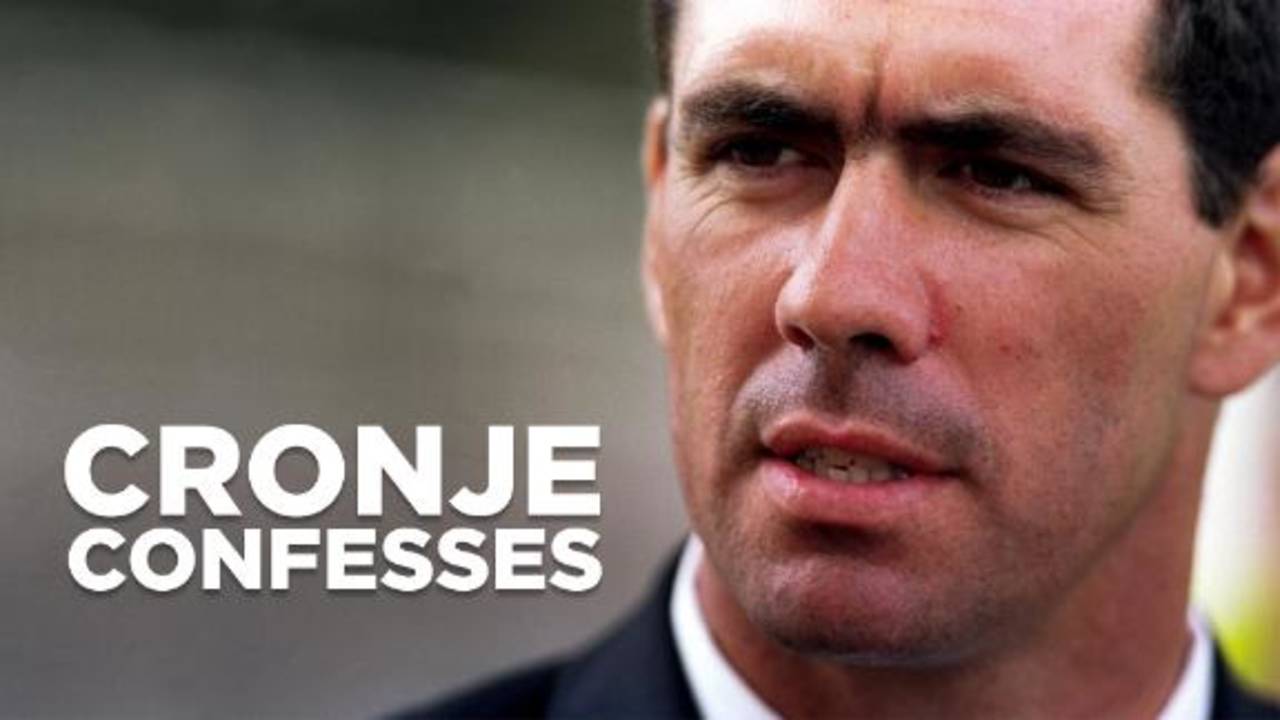Cronje's confession
When the game could no longer ignore the problem of corruption
Osman Samiuddin
26-Aug-2018
First, the denials and disbelief. The Indian police had framed him. It can't be him, all God-fearing. The tapes are a hoax. Then, less than a week later, a partial confession. Mayhem. And then, two months later, a fuller, more detailed confession. Welcome cricket world - and not just the subcontinent - to corruption in the game. Welcome Hansie Cronje.
Two things were made clear between April and June 2000, from the emergence of the Cronje phone calls with bookies to his confession at the King Commission. One, that this was a global blight. Until then, corruption had felt like a subcontinental problem (even though Mark Waugh and Shane Warne had admitted to dalliances with a bookie). With Cronje, the lid was blown on the depth and breadth of the reach of bookies. The report of India's Central Bureau of Investigation later in the year would make allegations against leading players from no less than eight of the nine Full Members at the time.
The other was that fixing in the game was not just rumour. It was real, very real. Indian and Pakistan cricket had been tearing through investigations and inquiries from the mid-'90s, and speculation was rife, but no conclusive picture was emerging of the mess. And now here was definitive proof - in the form of those phone calls - and then an out-and-out confession, by no less than one of the two leading captains in world cricket at the time.

The role model who was exposed as a fraud•Getty Images
The developments convulsed the game into action. In April itself, the previously unreleased Chandrachud Inquiry into Indian allegations was made public; even though it exonerated players, later that year the CBI would release its own, far more incriminating report. In May, the PCB released the Qayyum Report, the most comprehensive inquiry into Pakistani corruption. Above all, in June, the ICC set up its anti-corruption unit.
None of it made the game corruption-free. But Cronje's confession did the next best thing: it forced cricket to acknowledge its problem, and belatedly recognise the need for institutional vigilance.
Osman Samiuddin is a senior editor at ESPNcricinfo
